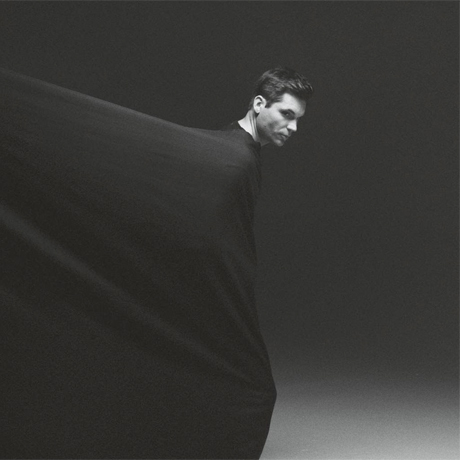Luke Wyatt, aka Torn Hawk, has released such an intimidating amount of music over the past few years that it can be difficult to get a handle on what he’s about. Is he the archly ironic synth pop auteur of Through Force Of Will, or the stargazing aesthete of ‘Born To Win’, for example? However, on the cumbersomely titled Let’s Cry And Do Pushups At The Same Time Wyatt provides his clearest artistic statement yet, trading the punky exuberance of his early efforts for a far more measured approach.
Guitar driven and melody led, Wyatt’s tracks unfurl with discursive unpredictability. Flying off at tangents or seizing one idea and throttling it to death, his EPs up until now have cried out for a broader canvas on which to work their magic. He has released on a multitude of labels in styles that adroitly side-step generic categorisation: he’s been labelled everything from krautrock to chillwave, with nothing really sticking.
Perhaps Wyatt’s own coinage best describes his approach. "Mulch", is his own description of his VHS saturated video collage technique, connoting, appropriately enough, a kind of recycling; a scrunching up of disparate source material, but it also hints at an emotional quality, being so close to "mush". Wyatt enacts this same form of emotional recycling in his music, mining the sounds of 80s synth and soft rock acts and blessing them with his own inimitable sun-drenched touch.
Despite his fondness for electronic textures, Wyatt is, and always has been, a guitarist first and foremost. His krautrock rhythms and meandering synths serve only as a foundation on which his six stringed melodies can cavort. What’s his style like? Well, at times it recalls a less bombastic The Edge, at others a less virtuoso Mark Knofler. But more often than not, he sounds like no one else at all. He careens around each track, refracting light like a waterfall, sending each song in unexpected, yet beautiful directions.
Whereas in the past Wyatt’s guitar has been used to present abrasive contrasts and sometimes unsettling sonic textures, on Lets… it shows how appealing it can be when it wants to. His delay heavy noodles lend the music an impressionistic feel, as if he’s painting with broad-strokes; it’s the bigger picture that counts, not the messy infinitesimal detail.
This album’s eight tracks consist of delicately constructed, multi-faceted instrumentals which reward multiple listens. Like a giant painting that’s only appreciated by edging further away, it takes time to comprehend their detail. ‘Because Of MASK’, for example, at first struck me as staid and slightly sleazy background muzak. The kind of fare one may encounter in the lift of an upmarket hotel. Yet over time its B movie synths became somehow plaintive and the languid guitars began to paint pretty pictures in my mind: like a plane’s vapour trail slowly dissipating against an azure sky.
Wyatt’s brand of wistfulness always previously felt like it was holding something back; as if there was always an ironic raised eyebrow lurking somewhere near but unseen. No so here. ‘Return To Pec Deck’, for example, is the most straight laced Wyatt production yet. It’s wide-eyed and unequivocally euphoric, with jubilant synths and guitars which whip up a frenzied, excited atmosphere. Elsewhere, Wyatt’s guitar improvs succeed in creating a gently melancholic atmosphere that is unequivocally warm. It’s as if each new melodic phrase signals a different thought, or fond recollection.
The record feels like the soundtrack to some deeply emotional event, but it’s one that’s witnessed from the safe and distant remove of hindsight. Song titles such as ‘Afterprom’ and ‘There Was A Time’ further this reading, as does each track’s palpable warmth. There is nothing raw. The reverie soaked track ‘She Happens’ is typical in presenting a winning contrast of strung out licks and deeply brooding chords.
Whilst the obvious crutch of these tracks is Wyatt’s guitar work, his synths are equally as important in creating the record’s otherworldly allure. They manage to coalesce with his guitar on the album’s strongest moments: as one becomes indistinguishable from the other. It is this coherency which arguably marks Lets… out as Wyatt’s strongest work to date. He has created a rewarding sonic landscape that is consistently poignant, without ever being cloying.
<div class="fb-comments" data-href="http://thequietus.com/articles/16629-torn-hawk-let-s-cry-and-do-pushups-at-the-same-time-review” data-width="550">


